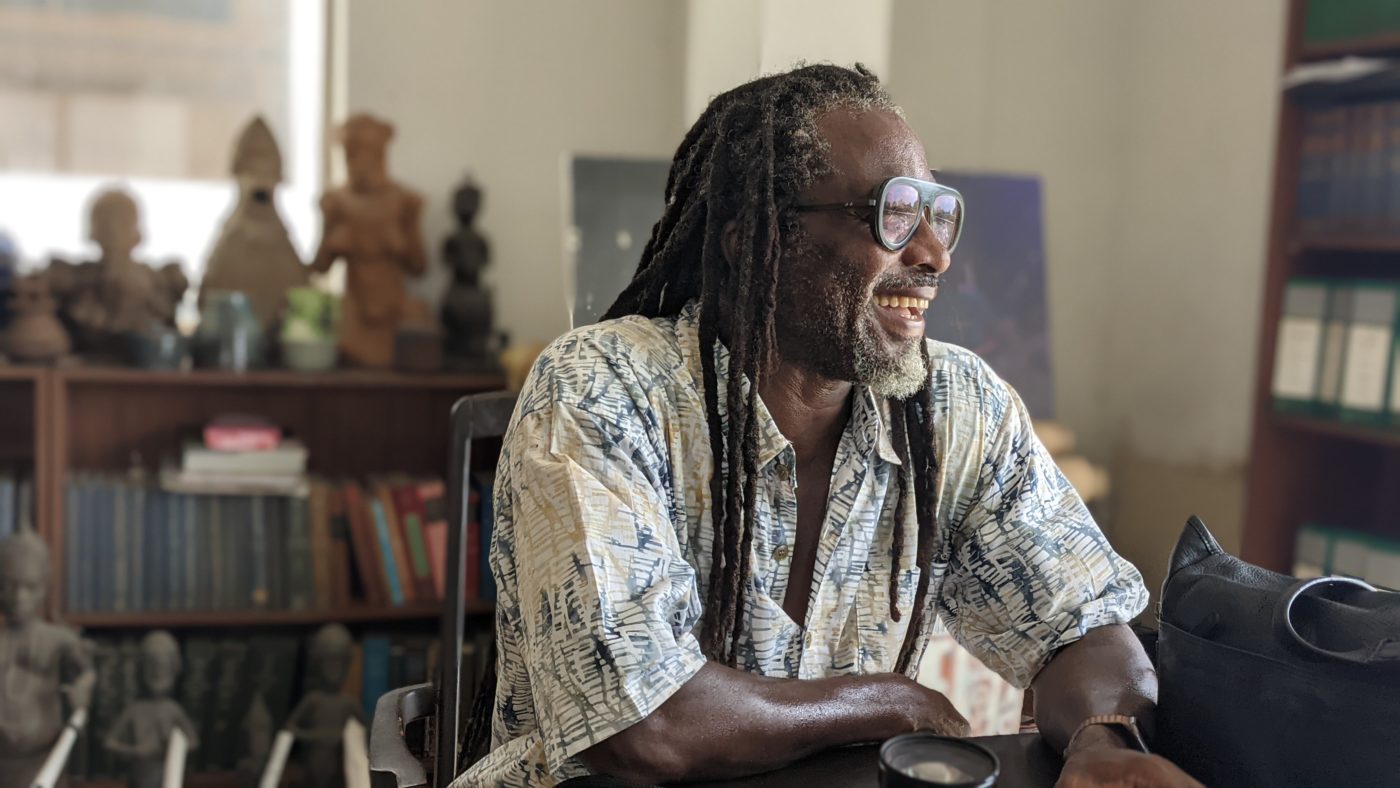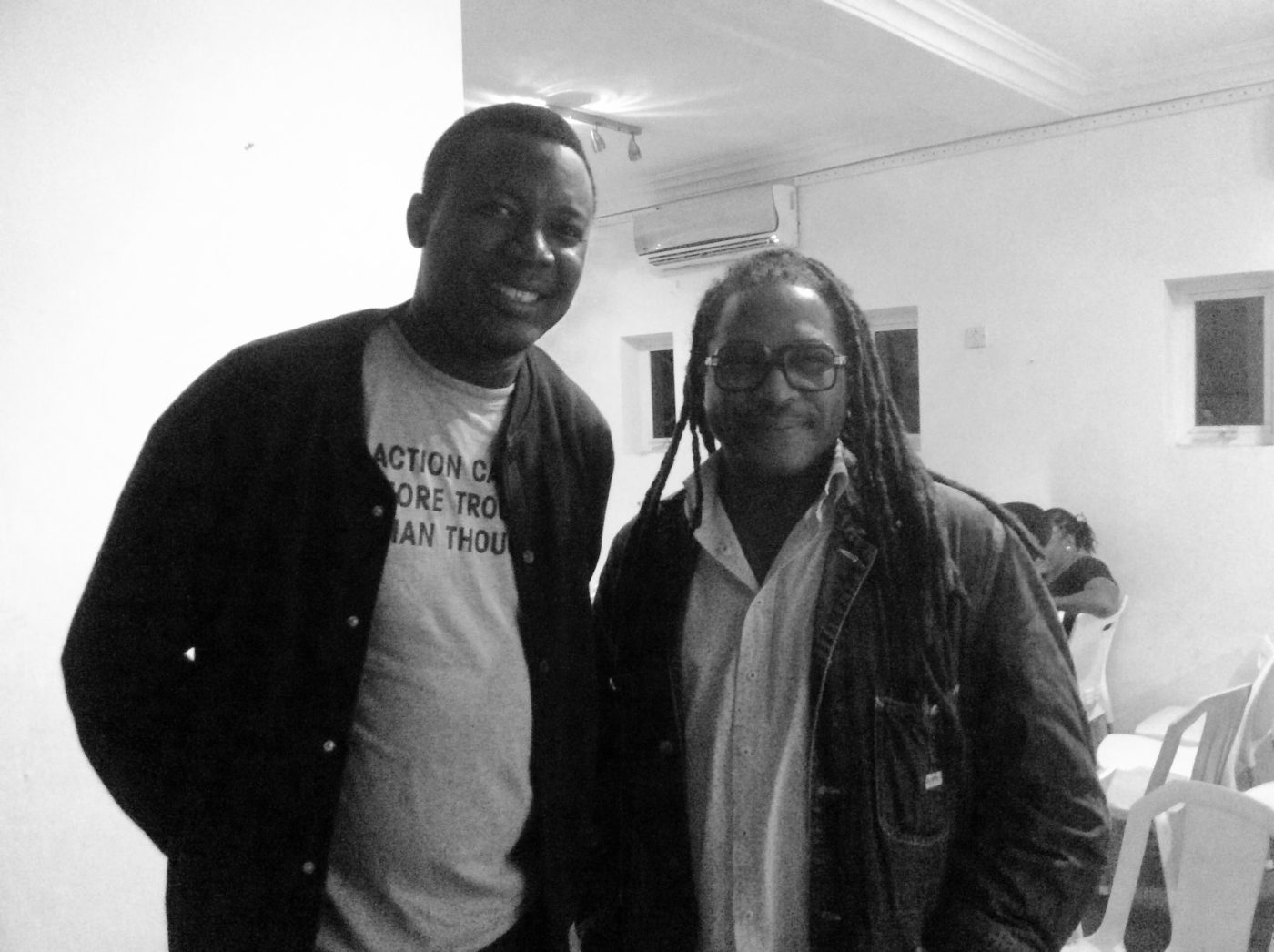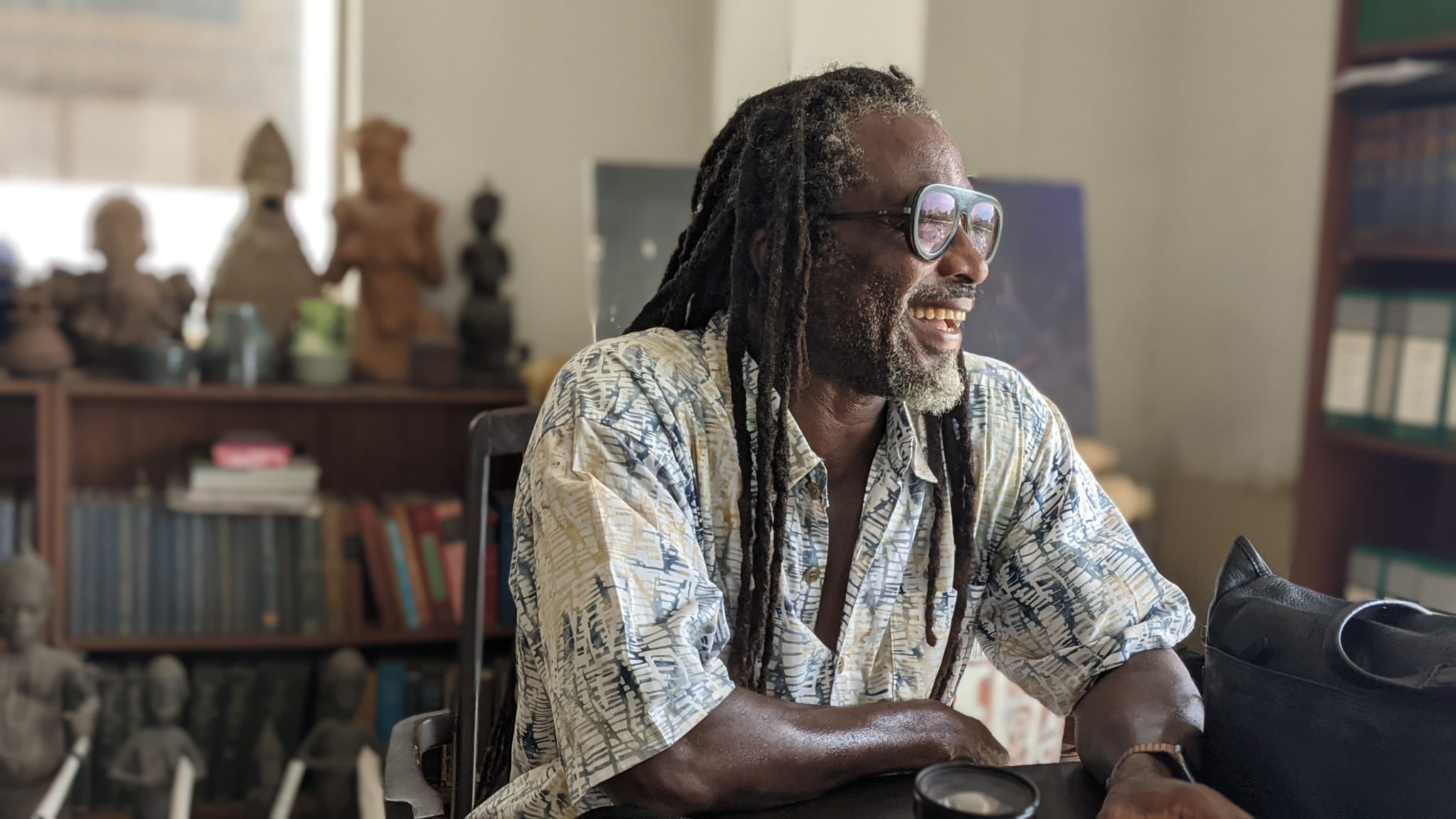It appears that the news is true, that the writer-director, author of Burma Boy, Biyi Bandélé, has passed.

This is a heavy sentence to type because I knew him. Harder to refer to him in the past tense; we still talked on the phone over a week ago, planning to meet in Lagos whenever he is on the Island. We still had a lot of work to complete. We still had a sit-down interview to do. And even though we had seen the private screenings of his just recently directed movie Ẹlẹ́ṣin Ọba, an adaptation of Wole Ṣóyínká’s Death and the King’s Horseman, we were still yet to enjoy the period of public scrutiny or adulation that was expected to follow its Netflix debut later this year, and its screening at the Toronto International Film Festival next month.
It wasn’t supposed to end like this, Biyi. He was going to be there in Toronto, he told me, and we promised to meet if our paths crossed in New York, too. He had dreams. An apartment to move out of in the US, a PhD programme to start in the UK, many more movies to direct and books to adapt, the review of his latest novel to complete with the publisher: a story of Samuel Àjàyí Crowther and his generation of West Africans captured without their permission and sold into slavery in the early part of the nineteenth century. Bándélé’s father was a Thomas from Abẹ́òkuta — the same name that was Fúnmiláyọ̀ Ransome-Kútì’s maiden name. The same family. In actual fact, he used to be called Biyi Bándélé-Thomas. The story of the emigration of the original Thomas, his capture by the British anti-slavery ships, his education in Sierra Leone, and his eventual return to Abẹ́òkuta to settle have only been briefly mentioned in earlier books, like Carlos Moore’s Fẹlá Kútì: This Bitch of a Life. Biyi wanted to fictionalize other aspects of the story in order to bring his ancestors and their contemporaries to life. It preoccupied him to no end, just like the story he had heard about their generation fighting in World War II in Burma inspired his 2007 novel.
In late 2020 when I was commissioned to interview him for Brittle Paper, it was because of this new novel that he had to turn me down. He had to finish it, he said, as if aware of some invisible clock ticking behind his ears. He was just getting out of a covid infection that knocked him down but couldn’t take him. He had, also, just been invited to direct two projects in Nigeria, one of which was Blood Sisters, a series by EbonyLife, which debut a few months ago to critical acclaim. The other, on which he would need my help, was the screen adaptation of Death and the King’s Horseman. The movie was to be almost fully in Yorùbá, a language he spoke well but with which he did not believe he had sufficient literary competence to write or translate having grown up in the north, where Hausa was his first language. Would I be willing to work with him in adapting and translating the play? To me, it was an honour, not just for the chance to see Sóyínká’s words back in Yorùbá or work on a groundbreaking movie production, but to attempt something different than Akínwùnmí Ìṣọ̀lá had done in his earlier translation of the same play. The language benefits, and so does the play. In return, we would have the interview, later, when all his table was clear, and he had some time on his hands.
Time, it seems, has now been taken away. If only he’d said so in clearer words.
It was first a tweet I saw while about to go to bed. Then a call to his phone that was screened. And finally, the words on his facebook page, written by his only daughter, confirming that our friend, our artist colleague, has indeed left us, without a warning.
It’s hard to believe. Not with his voice still ringing in my ears from the last time we talked, about all he still had to do. About our plans to meet again. Not with the jokes I can still see on my phone, in his response to a tweet I shared with him concerning what someone had said about his casting decision in the Ẹlẹ́ṣin Ọba trailer: “Àwọn pundits ti dé!”, he said, and we laughed it off. That genial self-effacement was characteristic. Not with our interview yet uncomplete, because I never remembered to turn on the record button even though our phone conversations went towards the hour and touched on everything I’d always wanted to ask, and to share with those who knew him only as the myth, covered by the clouds of his literary and screen successes. “Let’s do a Paris Review-type interview,” he’d say. Record everything, then we’ll both revise it later. But in-between friendly bants and serious literary and creative questions, the lines blur and the conversations stray into personal stories, aspirations, and contemporary issues — the exact things I’m looking for, but without any means to trap it except personal recall. I promise to try again another time. In a July chat, he said again “Let’s try for next month. I’m caught up in second draft revisions on my new book at the moment.”
Oh, what tricks time and fate plays on us. Ẹlẹ́ṣin learnt this the hard way, waiting too long.
And now Bándélé won’t get to hear, when everyone eventually sees the sublime work he did on the coming Ṣóyínká movie, our fawning admiration of his keen eye for detail, for casting, for history, for language, for culture. And the public won’t get to read, as I’d hoped, our long-form conversation ranging from his upbringing to his influences, to the issues and concerns that shaped him to where he is — was — is, today in the Nigerian creative space. I’ll never get to hear his answer to the question “Do you think the artist Burna Boy stole his name from your novel Burma Boy?” among others. I know only that he would first have laughed for a minute before attempting an answer. How, I’d have asked, does it feel to have successfully brought two Nigerian classic literary works into the screen in one lifetime? His first, Half of a Yellow Sun was eventually banned from Nigerian screens because of government thin skin. His second, a well-timed period piece, will be released in the same year as the passing of another Aláàfin of Ọ̀yọ́ around whom the story was written.
I am heartbroken, as many more would be when they wake up to read the news.

But I am also delighted to have known him, happy to have lived in this moment and this time, and in this city, when he did. Happy to have shared his dreams and creative energy, and being a little part of its realization. Occasionally, while revising his book, he would send me a message: “KT, how do we amify these words…” He would send a list of Yorùbá words from his book for which he needed proper tone markings. I would laugh at his amify coinage and send the correct spellings to him, happy to see a Nigerian writer dedicated to the proper writing conventions even when it’s not always popular. One time, when I was looking for the cover designer of a book I was working on, he introduced me to his daughter, who worked as a visual artist. When the relationship didn’t work out because of time constraints, he was full of apologies, as if it was his fault. His humanity and empathy was real and affecting.
From his movie adaptation of Half of a Yellow Sun to Blood Sisters to Shuga to Fifty, and to Ẹlẹ́ṣin Ọba, to his written works The Man Who Came in from the Back of Beyond (1991), The Sympathetic Undertaker (1991), The Street (1999), Burma Boy (2007), and his forthcoming novel, Yorùbá Boy Running, his work will endure. One is grateful, also, to Mo Abudu’s EbonyLife for bringing Bándélé back to Nigeria in 2020, to give us this final measure of his brilliance.
For those who know him, we will remember his belly-deep laughter, the squint in his eyes, the depth of his humanity and creativity. In the last couple of months, he began to share photos, on his Facebook page, of the people he met while walking around Lagos Island. These were ordinary people doing ordinary things. But each photo captured something fine, something tender, something representative of our humanity in everyday interactions. Biyi saw us as we are, and sought to show us to ourselves. He connected deeply with his roots, and sought to reinforce it, in as many colours as possible.
However, unlike Ẹlẹ́ṣin Ọba, Bándélé seemed to have completed his work much before the time was up, and hurried away on the king’s favourite horse before we could begin to look for him. What a way to go. What a terrible trick to play on us. What a theatrical finish! One presumes that he’s laughing all the way up now, away from this scene of despair, perhaps delighted to have caught us all unawares. Ìyálọ́jà admonishes us to turn our faces to the unborn, anticipating all the remaining work yet to see the light of day.
See you someday at the elders’ feet then, Uncle Bíyìí, when we wake up from this bewildering dream.
______
Kọ́lá Túbọ̀sún, writer and linguist, is the publisher of OlongoAfrica.
